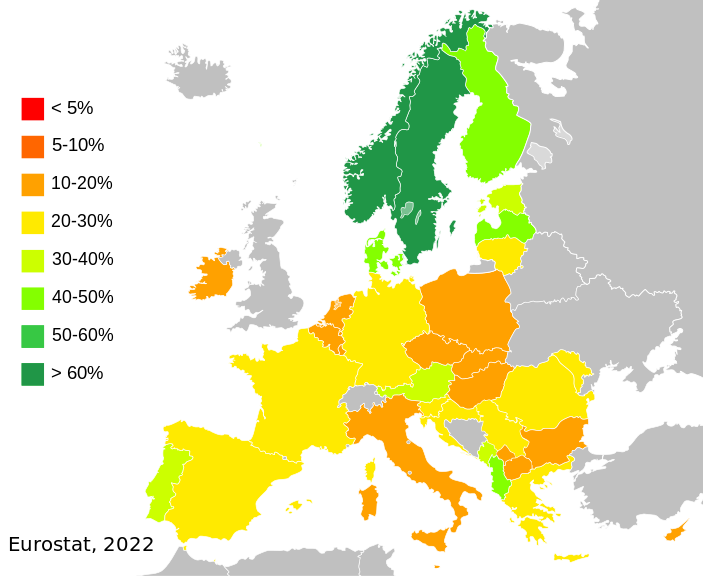Trailing the pack
Ireland is in a fairly unique situation. Even though we’ve attracted a multitude of top tech companies, our gross use of renewable energy still trails the EU average. Why is it that we still greatly rely on fossil fuels despite huge investment in the technology sector? Can anything be done about it?

Legislating the future
In July, the Oireachtas committee for climate action and environment reviewed the 2018 Climate Emergency Bill, which proposed a ban on further fossil fuel exploration in Ireland. The committee heard that energy consumption would have to be reduced in order for Ireland to make a significant dent in its carbon dioxide emissions. Thankfully, there are a number of ways in which Ireland could reduce its energy usage — but none of the solutions are easy.
Data sells
There is one emerging industry which is projected to use an astronomical amount of energy — data storage. Companies such as Facebook justify their energy usage by vowing to use only renewable energy, but here’s the thing: they don’t generate the electricity themselves. In buying renewable energy from other firms, tech companies can absolve their responsibility whilst contributing to a net loss in available renewable energy — which inevitably drives up usage of traditional fuels elsewhere. A recent paper published by Trinity College predicted that the total energy requirements of data centers in Ireland could be as high as 28 terawatt hours by 2025. This year, Facebook has only added 2,500 megawatts of renewable capacity globally; this clearly isn’t even a fraction of what will be required in the coming years. Data centers could — as noted by the Trinity paper — greatly reduce energy usage by using water cooling instead of traditional mechanical cooling. This probably isn’t a more economically attractive solution; even though water cooling would save on energy costs, the maintenance required would be much higher.
Technocratic oath
When it comes to climate change, perhaps the biggest issue is that there is no singular quick fix. Particularly in Ireland, the climate crisis is also linked to other issues. For example, the housing crisis directly contributes to our high fuel usage by forcing people to live outside the capital and commute. It’s tempting to expect technology to fix our problems, but to do so abdicates our own responsibilities. While Tesla have made great strides in developing new energy storage technologies, it’s important that we don’t lose sight of the small yet important things we can do ourselves. The situation may seem insurmountable; especially when many activists (such as Daniel Pinchbeck) make the case that economic growth must be avoided in order for our society to become truly sustainable. However, we can effect positive change on a daily basis by traveling less, eating less meat and pressuring lawmakers and legislators to adopt pro-environmental policies. If companies are capable of doing things in a better way — such as incorporating water cooling technologies or adding to the solar capacity — then they should be incentivized and pressured to do so.





